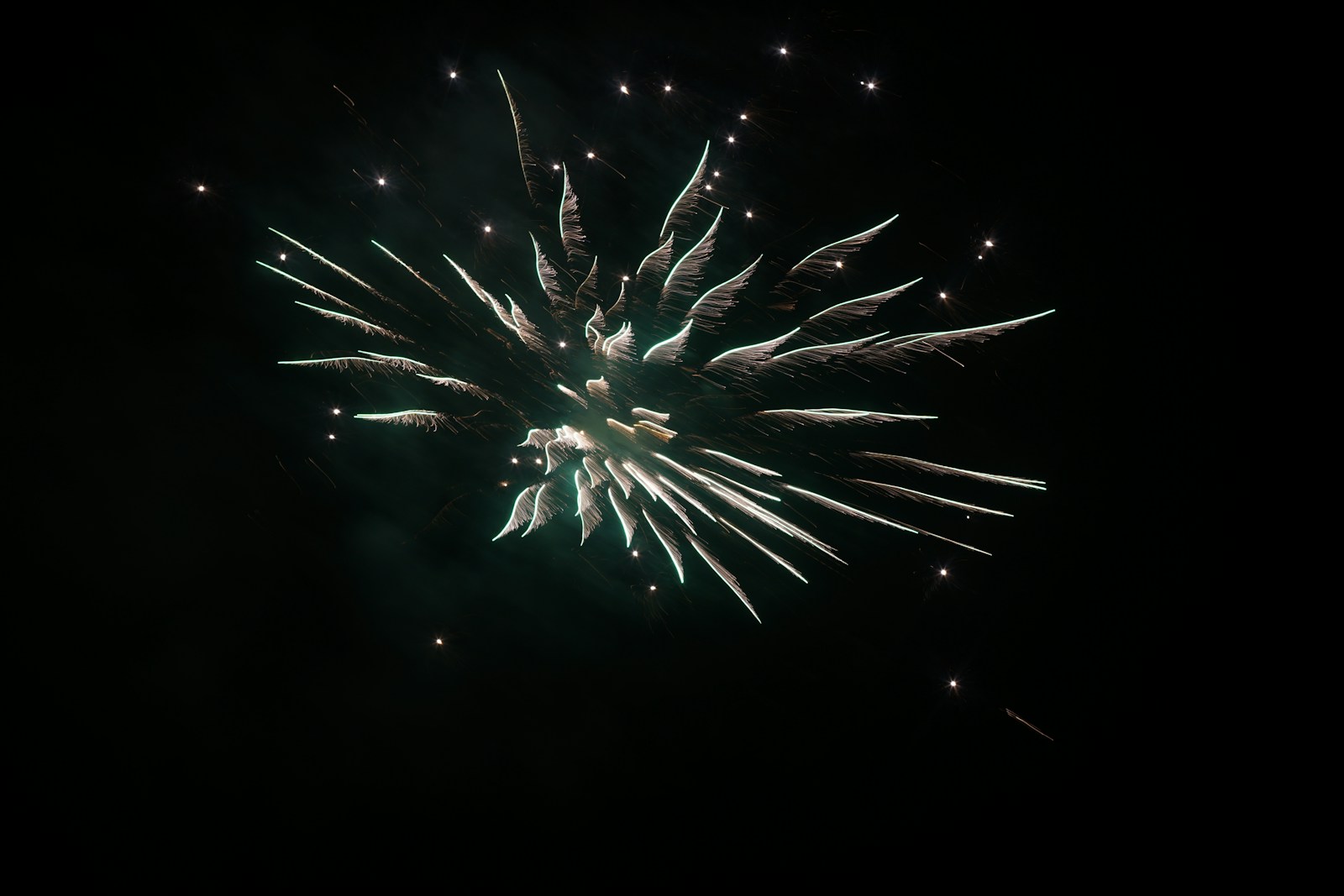
Feuerwerk

fireworks
The German word for fireworks is 'Feuerwerk'. It is used to describe the display of lights and sounds produced by the ignition of various types of fireworks. It is commonly used during celebrations such as New Year's Eve or national holidays.
Example sentences using: Feuerwerk
Das Feuerwerk beginnt um Mitternacht.

The fireworks start at midnight.
This sentence communicates a simple ongoing action or event that will take place in the future. 'Das Feuerwerk' is the subject of the sentence, and 'beginnt' is the verb in its present tense. 'Um Mitternacht' represents the time at which this action will take place.
Ich habe noch nie ein schöneres Feuerwerk gesehen.

I have never seen a more beautiful fireworks display.
This sentence communicates a past event in a way that emphasizes the speaker's personal experience. 'Ich' is the subject, 'habe gesehen' is the present perfect tense of the verb 'sehen' (to see), 'noch nie' is an adverbial phrase indicating 'never before', and 'ein schöneres Feuerwerk' is the object in the comparative degree.
Du solltest das Feuerwerk nicht verpassen.

You should not miss the fireworks.
This is an advice sentence where the speaker is suggesting someone not to miss the fireworks. 'Du' stands as the subject which means 'you', 'solltest' is the second person singular of the modal verb 'sollen' which indicates recommendation or advice, and 'verpassen' means to miss.